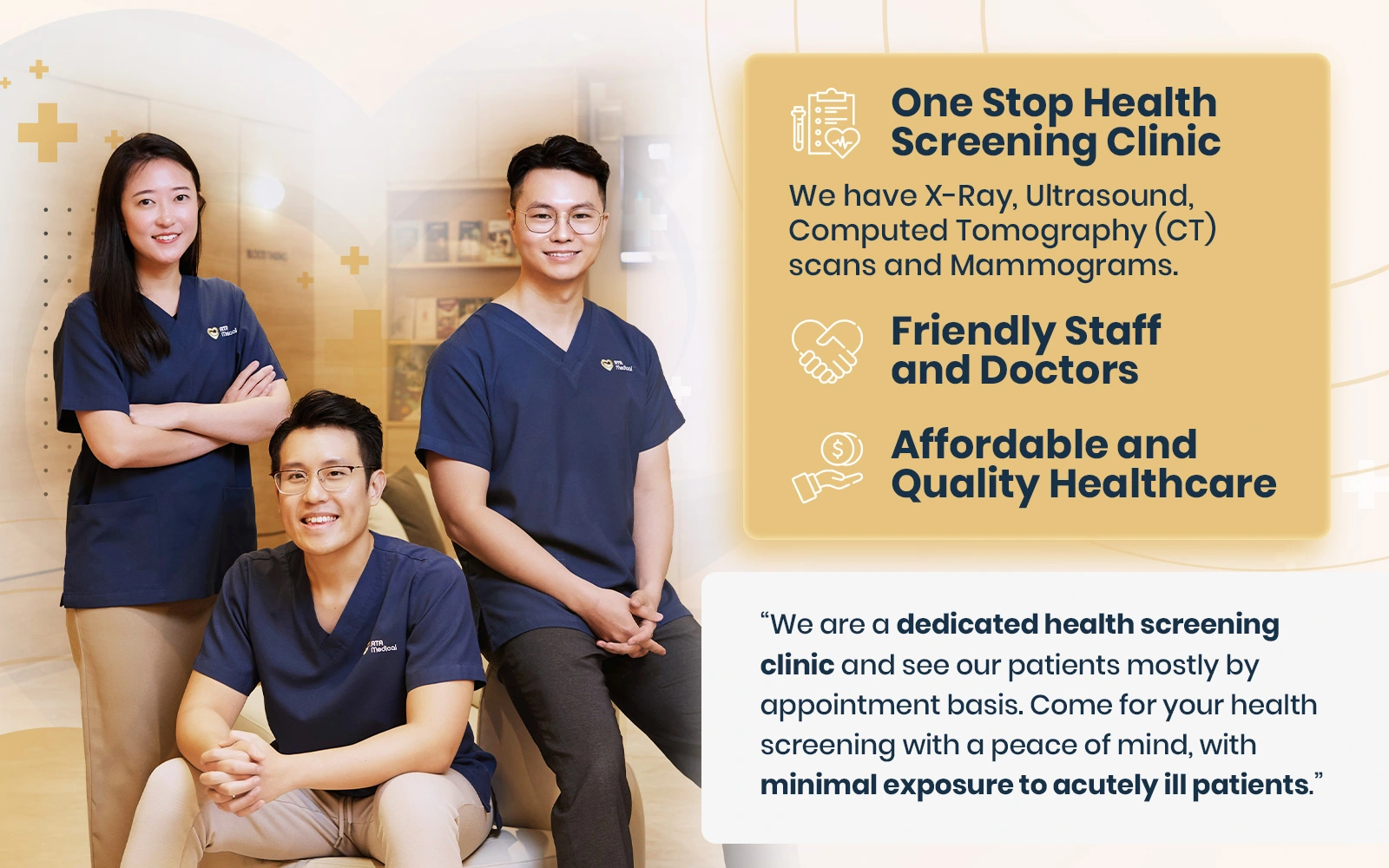How Often Should You Test for STDs?
Last updated: Dec 20, 2025
If you are sexually active, it is recommended to undergo testing for sexually transmitted diseases (STDs) at least once a year. Routine screening is essential to detect and treat infections early, reducing the risk of long-term health problems.


In 2018, Singapore reported 7,555 cases of sexually transmitted infections (STIs), highlighting the importance of regular testing to help prevent the spread of these infections. Understanding your personal risk factors and testing frequency can help you maintain good sexual health.
Common Myths About Testing Intervals
Myth: Testing is only necessary if you're in a new relationship.
Reality: Even in long-term monogamous relationships, testing is recommended
because STDs can lie dormant for years without symptoms. New infections can also occur if
infidelity is a possibility.
Myth: If my partner gets tested, I don't need to.
Reality: While testing your partner is a good step, it doesn't guarantee
your own STD-free status. Testing windows (the
time it takes for an infection to show up on a test) can vary, and it's possible to contract
an STD during the interval between your partner's test and yours.
Myth: Having one negative test result means I'm clear.
Reality: A negative test only indicates your STD status at that specific
point in time. If you engage in risky sexual behaviour after the test, you can still
contract an STD.
Myth: If I don't have symptoms, I'm fine.
Reality: Many STDs are asymptomatic, meaning they don't cause any
noticeable symptoms. Regular testing is the only way to be sure of your STD
status.
Understanding these common misconceptions is essential to ensure responsible sexual health
practices.

Factors Influencing How Often You Should Test
Several factors influence how often you should get tested for STDs, including:
- Number of sexual partners: Having multiple partners or new partners increases your risk of exposure.
- Type of sexual activities: Certain sexual practices carry a higher risk of STD transmission.
- Unprotected sex: While consistent and correct condom use can significantly reduce the risk of STD transmission, it's not foolproof.
- Presence of symptoms: While some STDs cause noticeable symptoms, many are asymptomatic.
- Risk groups: Individuals who fall into high-risk groups, such as those who engage in commercial sex or with a history of STDs, should generally adhere to more frequent testing schedules (often every three to six months).

Regular Testing Intervals for STDs
Here are suggested testing intervals of common STDs:
| Type of STD | Suggested Testing Intervals |
|---|---|
| Chlamydia and Gonorrhoea | Annual testing is recommended for sexually active women under 25 and women older than 25 with higher risk factors such as new or multiple partners. Men who are sexually active should consider testing annually also. |
| Human Immunodeficiency Virus (HIV) | Everyone aged between 13 and 65 should be screened at least once as part of routine health screening. Those at higher risk should test at least once a year. |
| Syphilis | Annual testing is recommended for sexually active individuals and while those at higher risk should consider more frequent testing. |
| Hepatitis | Everyone above age 18 should be screened at least once in their lifetime for Hepatitis B and Hepatitis C. |
| Herpes | Herpes is not generally tested routinely. However, those with symptoms or partners with herpes should consult their doctor. |
| Human Papillomavirus (HPV) | Women between 25 and 65 should test every three to five years depending on age and health history through pap smears and HPV tests. Men are generally not tested regularly for HPV but may be recommended to do so if they exhibit symptoms such as genital warts. |
Clinics may offer tests that can identify multiple STDs, such as Multiplex PCR (Polymerase Chain Reaction). It is important to discuss with your healthcare provider which appropriate tests, testing frequency, and treatment options based on your individual circumstances. This approach helps ensure effective management of your health and minimises the chance of reinfection.
Summary
Regular STD testing is essential for maintaining sexual health. Testing frequency varies based on individual risk factors and the type of STD. Understanding and adhering to recommended testing schedules ensures early detection and effective management. By promoting regular testing and responsible sexual health practices, we can significantly reduce the spread of STDs, empowering individuals to make informed decisions about their health. If your last STD test was a while ago, we encourage you to get tested to stay informed and protected.
Why Choose ATA Medical?








Delivering Care Patients Appreciate
What to Expect
FAST RESULTS
We strive to deliver your results within 7 working days.
MINIMUM WAITING TIME
Our patient-oriented processes ensure your waiting time is kept to a minimum.
Friendly Service
Service is a top priority for us at ATA Medical.
Email Us at camden@atamed.sg for more
information.
Book your STD screening with us at 88750352


